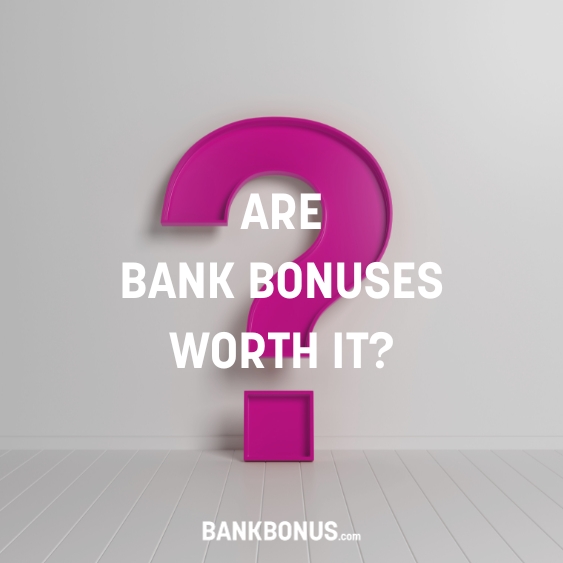Whether your circumstances change or you discover a more rewarding option, closing a credit card might seem like a no-brainer.
But before you take this step, it’s important to understand the consequences it can have on your credit.
Read on to weigh the pros and cons and learn how to cancel a credit card with minimal damage to your credit score.
6 Steps to Cancel a Credit Card
Once you decide to cancel your card, the process is relatively simple and straightforward. By following these steps, you can make sure that your credit card is completely closed.
1. Pay Off Your Balance
The first step to canceling a credit card is to make sure that any outstanding balances are paid in full. Closing a card doesn’t absolve you of your responsibility to repay credit card debt. Be sure to make regular payments until you’ve brought your account balance down to zero.
Before you start the cancellation process, double-check with your credit card company to ensure the card has a zero balance and no pending charges.
If you have subscriptions or automatic payments linked to your account, be sure to move these charges to another card or cancel them.
2. Redeem Rewards and Points
Rewards credit cards and travel credit cards offer great perks to cardholders, but these points and rewards become nullified if you close the account without using them.
Before you contact your card issuer to close the account, be sure to redeem your rewards and points. Check with your credit card issuer to see how you can cash in on these rewards or if you can transfer them to another account with the same issuer.
3. Contact Your Credit Card Issuer
To officially close your account, you need to contact your credit card issuer directly. Look on the back of your card for the customer service phone number or check on the credit card issuer’s website.
When you call, be ready to answer security questions to verify your identity and provide account information.
4. Request Written Confirmation
After you call your credit card company to cancel your card, request that they send you written confirmation through USPS or email to confirm that your card is canceled.
This notice should include the account number, closure date, confirmation of zero balance, and any other details related to the cancellation.
5. Cut Up Your Card
Take a pair of scissors—or tin snips if you have a metal card—and carefully cut your card into small pieces. Make sure you destroy the number, expiration date, and CVV. This prevents accidental or unauthorized use of your physical card after the account is closed.
6. Keep an Eye on Your Credit Report
You should keep an eye on your credit after you close your credit card account to ensure the cancellation is properly reflected on your report.
It’s normal to see a fluctuation in your score because of the changes in credit utilization and credit history length. However, if you notice that the account is still open or there are any other inaccuracies, you should report them to the credit bureaus immediately.
When Should You Cancel a Credit Card?
Knowing when you should cancel a credit card account is a bit tricky. If you’re unsure, here are a few signs it’s time to cancel your credit card.
The card has a high annual fee or interest rate.
High-interest rates and annual fees are two of the most common reasons people cancel credit cards.
The best credit cards (i.e. the cards with the best rewards and points programs) often come with the highest annual fees. After all, cashback, travel points, and other perks aren’t free, and credit card companies need to make money in exchange for the benefits they offer. If you aren’t utilizing the perks to the fullest extent, it might be worth it to cancel the card.
If the card’s interest rate is getting in your way, you can always look into transferring your account balance to a credit card with a lower interest rate. Many credit card companies offer balance transfer promotions to move your existing balance to their cards.
Do your research to see if there are any balance transfer credit cards with low-interest rates or promotions to move your balance for a low fee.
You haven’t used the card in a while.
You might have a credit card that you rarely use or has been inactive for a while. While having unused credit cards doesn’t impact your credit score, they can still be susceptible to fraud or identity theft. In this case, it may be better to close your account rather than put your financial security at risk.
The biggest issue when it comes to closing unused credit cards is that you’re reducing your available credit, which can lower your credit utilization ratio. However, it’s better to pare down if you have lots of credit cards you don’t use rather than risk having someone else steal your information and commit fraud in your name.
You have a hard time controlling your spending.
A credit card is a great financial tool, but it can also be a source of temptation for people who struggle to control their spending. If your spending is impacting your ability to save or cover basic expenses, it might be time to downgrade the amount of available credit you have access to.
It’s important to remember that closing a credit card with a balance won’t make the debt disappear. A credit card company may turn the account over to collections if you fail to pay, which can have a significant negative impact on your credit score. Be sure that your balance is entirely paid before you close the account.
Does Canceling a Credit Card Hurt Your Score?
Closing a credit card can have a negative impact on your credit score, but the extent depends on a few factors.
Credit Utilization Ratio
Your credit utilization ratio is the percentage of your total available credit across all accounts that you’re currently using. Experian, Equifax, and Transunion, the major credit bureaus, award better scores to people with lower utilization because their rate demonstrates an ability to use credit responsibly.
When you close a credit card, the available credit on that card is no longer factored into your overall credit limit. As a result, if you have balances on other cards or lines of credit, your credit utilization ratio may increase.
For example, if you have a total credit limit of $10,000 across three credit cards and owe $2,000, your credit utilization rate would be 20% ($2,000/$10,000). However, if you decide to close a credit card with a $3,000 credit limit, your overall credit limit drops to $7,000. This means that your credit utilization would jump to 28.6% ($2,000/$7,000).
Credit History Length
Another important factor that influences your credit score is the length of your credit history. Credit bureaus like to see longer credit histories because it shows that you can maintain a line of credit for a long period of time.
Closing a credit card can potentially shorten the average age of your credit accounts, especially if you’re closing one of your older cards.
The impact of closing a credit card can be even more significant if your closed account is also one of your oldest. In general, it’s better to close a new card account and keep an older card open.
Frequently Asked Questions
Is it better to cancel or keep unused credit cards?
The decision to keep or close a credit card is personal and will depend on your financial situation. You should keep your account open if you can responsibly use your credit and if it’s your oldest account. If you have a new account that you have a hard time paying off, it’s better to close it than risk temptation.
What happens if I cancel a credit card with an outstanding balance?
You are still responsible for paying your credit card balance and monthly interest even if you cancel the card. If you cancel a credit card with a balance, the company may issue a collections notice on your credit report, which can significantly impact your credit score.
If you can’t pay off your credit card balance in full, look into balance transfer offers on your other credit cards or a credit card with a lower interest rate.
Can I cancel a pending transaction on a credit card?
In most cases, no. Pending transactions cannot be canceled by the bank or credit card company until the transaction is posted. Once it’s posted, you should call the merchant and ask them to cancel the transaction. If you’re unable to cancel the transaction through the merchant, you can file a dispute with the credit card provider.
Can I cancel a credit card application?
If the application hasn’t been processed and approved, you can call the credit card company and ask them to cancel the application. You shouldn’t waste any time if you want to cancel a credit card application. Most issuers process applications quickly, so you need to be prompt if you want to avoid a new account being opened in your name.





Comments are closed.
Comments are closed here.